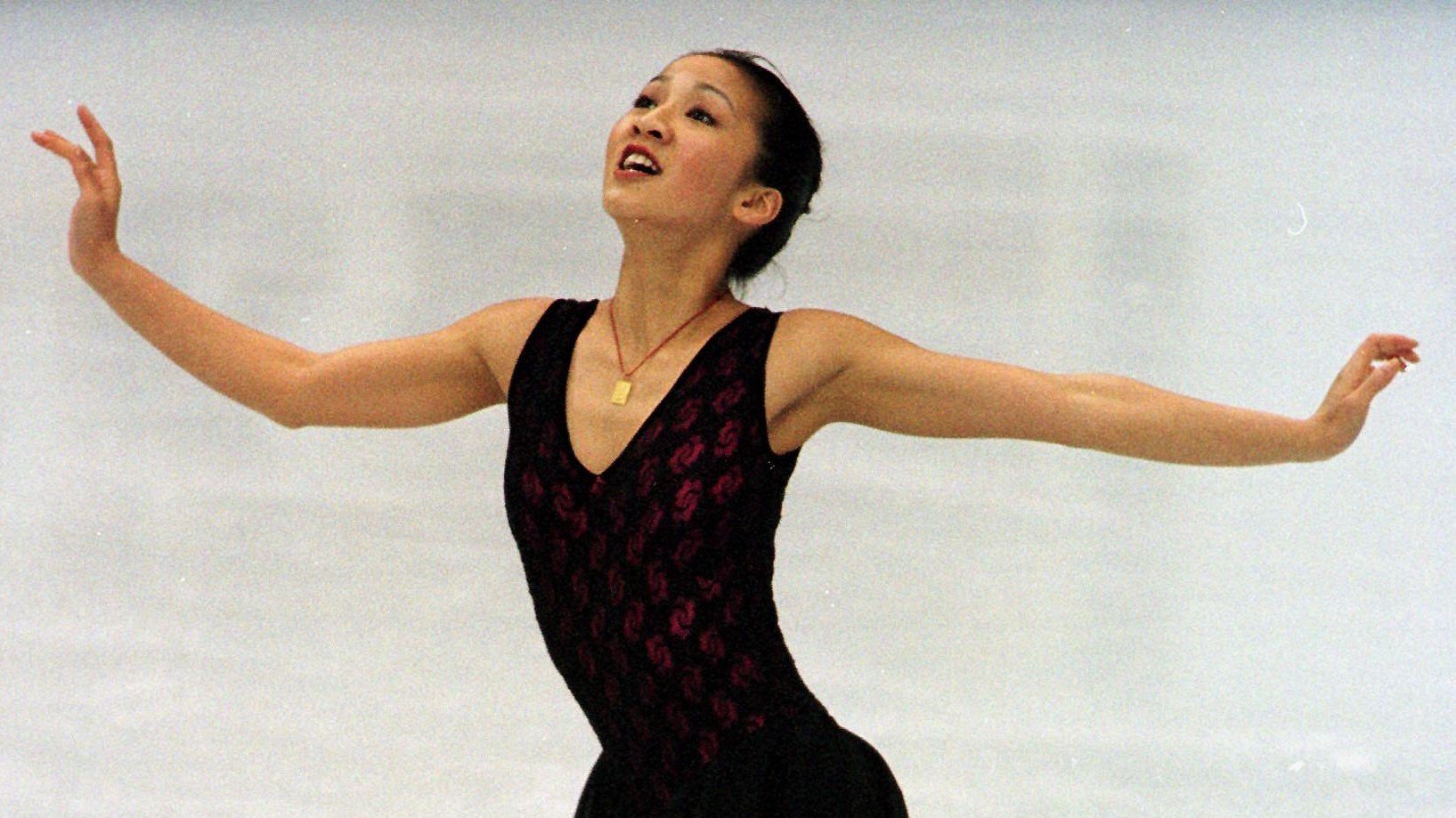From the October 2021 issue of SKATING magazine
By Philip Hersh
On Jan. 20, 1993, the Chicago Tribune published the first of 544 stories I would write for the newspaper over the next 23 years in which Michelle Kwan was mentioned, some 200 of them with her as the primary subject.
It was headlined, “Ingenue takes to ice as U.S. Nationals open.”
Both Nancy Kerrigan and I had first met Kwan a day earlier, during practices for the 1993 U.S. Championships in Phoenix. “How old is she?” Kerrigan, then 23 and a World and reigning Olympic bronze medalist, asked Evelyn Kramer, one of Kwan’s coaches.
“Twelve,” Kramer replied.
“Twelve,” Kerrigan echoed, looking at the 4-foot, 11-inch, 77-pound Kwan as if trying to process that she could actually be in the senior women’s event at that age.
Kwan, then some six months shy of her 13th birthday, was the youngest competitor in the senior women’s division at the U.S. Championships since 11-year-old Priscilla Hill in 1973, when she finished 13th.
Of facing much older top skaters like Kerrigan and Tonya Harding, Kwan said in Phoenix, “They have been there for a couple hundred years. I’m just starting to rise.”
It didn’t take long. Kwan finished sixth, landing more triple jumps in the free skate than the five women who placed ahead of her.
Thus started the Kwan decade(s), in which I would be on hand to chronicle every major step of the rise, covering her five World titles, nine U.S. titles and two Olympic medals — silver and bronze.
The next step, 18 days after her 13th birthday, came before what is believed to be the largest live audience ever to see a figure skating competition, 25,691, at the U.S. Olympic Festival at the San Antonio Alamodome. Kwan won the event with a performance that led 1960 Olympic champion Carol Heiss to tell me, “Today she became a star.”
By the next year, still just 13, Kwan had won her first of 12 straight medals (nine gold, three silver) at the U.S. Championships. Two years later, in winning the 1996 Worlds at 15, she delivered what remains for me the signature performance of her career for several reasons, as I wrote then:
“Never before Saturday night have two women skated so well in the same event, which made Michelle Kwan’s triumph over defending champion Lu Chen of China in the World Championships one for the ages.
“The ages in question are jet, space and computer, as Kwan and Chen combined artistry and athleticism in a way that foreshadows the figure skating of the 21st century. Each received two perfect scores of 6.0 for artistic impression. And their performances also had that in-your-face quality of the peanuts-and-beer sports.
“It was as if Chen did a reverse dunk for the apparent winning basket and Kwan, 15, of Torrance, Calif., followed it with a 360-degree slam at the buzzer. And each had to do those show-stopping moves while remaining perfectly in harmony with a choreographed program set to music by Rachmaninoff (Chen) and Richard Strauss (Kwan).”
Since then, every time I have heard “Dance of the Seven Veils” from Strauss opera Salome, I think of Kwan tacking on a flawless triple toe loop as the music hit its climactic arpeggios with four seconds left in her program. It gave her seven triples, one more than Chen. It was the perfect illustration of the balanced artistic-athletic mastery only the greatest champions can achieve.
At the 1998 U.S. Championships, the nine judges rained perfect presentation scores on Kwan (seven in the short program, eight in the free). That sent her to the 1998 Olympics in Nagano, Japan, as a heavy favorite, which would prove a heavy burden.
Overly cautious in the free skate, Kwan lost the gold to Tara Lipinski, who performed flawlessly and with unfettered joy. It was of small consolation to Kwan that she and Lipinski, at 15 the youngest Olympic champion in history, had done what likely were the two most brilliant Olympic women’s free skates ever, until those of Russians Alina Zagitova and Evgenia Medvedeva in 2018.
What everyone in Nagano remembers most about that night is how graciously Kwan accepted the result. She was not yet halfway into her celebrated senior career, and her respectful nature allowed her to be the alchemist whose dignity had turned silver into gold in the minds of a public whose admiration for her would continue to grow.


